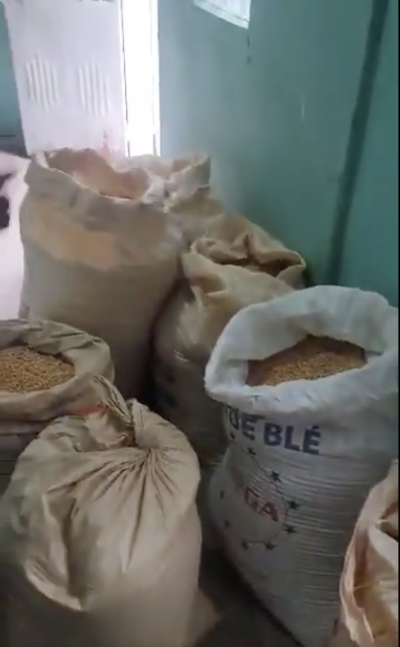
With all that’s going on in the past few weeks, you may have missed the news from Haiti. Criminal gangs shot at a couple of airliners flying into and out of Haiti, injuring at least one person and leading the FAA to ban U.S. airlines from flying into Haiti for 30 days.
Gang violence has intensified and spread far beyond Port-au-Prince into the north. Over 700,000 people have been displaced and half the country, 5.5 million people, is facing starvation. The situation profoundly impacts children: the UN reports a tenfold increase in sexual violence against children, and that up to half of gang members are children under the age of 18. Many schools remain closed while the buildings are used to shelter the displaced.
Citing gang violence, Haiti’s Transitional Council, appointed to schedule elections and return Haiti to democratic governance, fired the Prime Minister this week after only 6 months of service. The situation has descended into chaos.
The violence and chaos in Haiti has many roots in U.S. policies. We supported and kept in power an unpopular, undemocratic and corrupt government, which helped fuel the rise of gangs. Weak U.S. gun laws and a failure of enforcement oversight has led to illegal trafficking of weapons to Haiti and elsewhere, and so Haiti’s criminal elements have more firepower than the police. Decades of poorly-targeted aid programs keep poverty entrenched. Despite mass displacement, neighborhood massacres, and starvation, the U.S. government turns Haitians away at our borders and puts them on deportation flights back to Haiti.
In the face of this, Quixote Center remains focused:
- We support economic development to improve income and food security, especially with our long-term partners at Grepen Center and Gros Morne;
- We are organizing to end the trafficking of weapons from the U.S. that is the underlying cause of the chaos;
- We continue our work to reinstate the USDA mango export contract with Haiti;
- We are working with partners to develop an advocacy platform for the new Congress and Administration, to include the above, plus governance and immigration issues.
Gros Morne and Grepen Center
Quixote Center continues to support a tree nursery, forest maintenance, demonstration garden plots, and community training programs on reforestation and gardening at the Grepen agricultural center, near Gros Morne. During the last quarter 120 families purchased 1000 seedlings, which were mostly fruit trees to produce a cash crop. The demonstration garden benefitted more than 250 families with training and produce. They are particularly proud of this year’s corn crop (see video), which they will mill and sell. Our support also covers the staff costs for maintaining and protecting the local Tet Mon forest, which keeps the local tree cover and prevents landslides and flooding.
New projects are proceeding, but very slowly. One of our planned new projects is a veterinary care pharmacy, to support animal breeders in preventing needless livestock illness and death. Livestock is a crucial income generator for many rural Haitians, and access to vaccines and medicines will improve their livelihoods. The pharmacy has been ready to go since September, but medicines come from the Dominican Republic, and due to insecurity and customs issues, delivery is delayed.
We are also working on a pilot fish pond project. Our partners have identified a company to install the pond, which will have three sections to hold fish during their life cycle. There is now a cash shortage at the banks, and so banks place limits on withdrawals. Because of the problems with cash withdrawals, we don’t want to predict how long it will take to construct the pond.
Advocacy Priorities
We hosted successful advocacy days to end weapons trafficking from the U.S. to Haiti in September. With a coalition of 40+ organizations and at least 30 meetings with Congressional offices, we got their attention. We are currently assessing the landscape post-election. We expect to move forward with a new strategy by December.
Removal of Haiti’s Prime Minister complicates the mango export contract, because the negotiations take place between USDA and Haiti’s Ministry of Agriculture. We don’t know yet if the new Prime Minister will appoint a new Minster of Agriculture, but it is likely. We continue to work with partners to keep this issue top of mind with the State Department and U.S. Embassy officials.
We are also looking at forming an even larger alliance to coalesce behind a platform for advocacy as it relates to Haiti. The Haiti solidarity community is vast, and so is the Haitian-American community. Together, we have more power than we realize or have utilized. Those conversations are taking place now.
We are organizing to make a difference. Without your generous support we could not do this work. Thank you.


